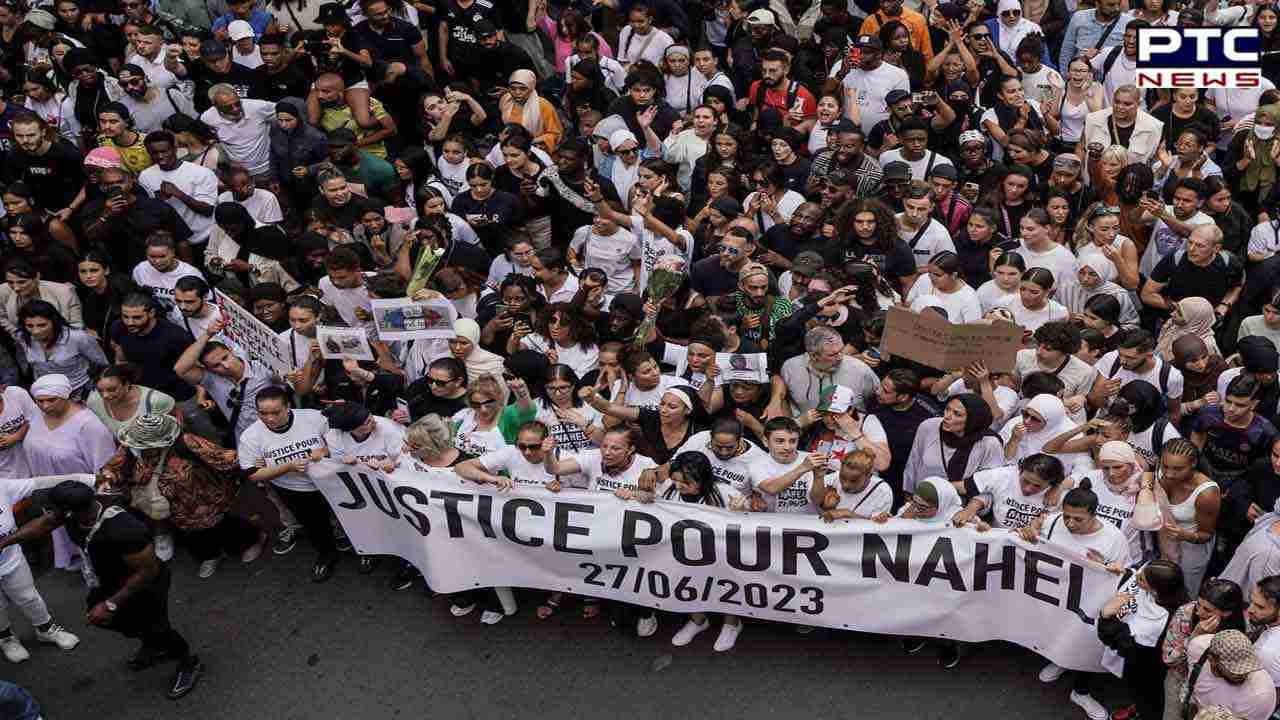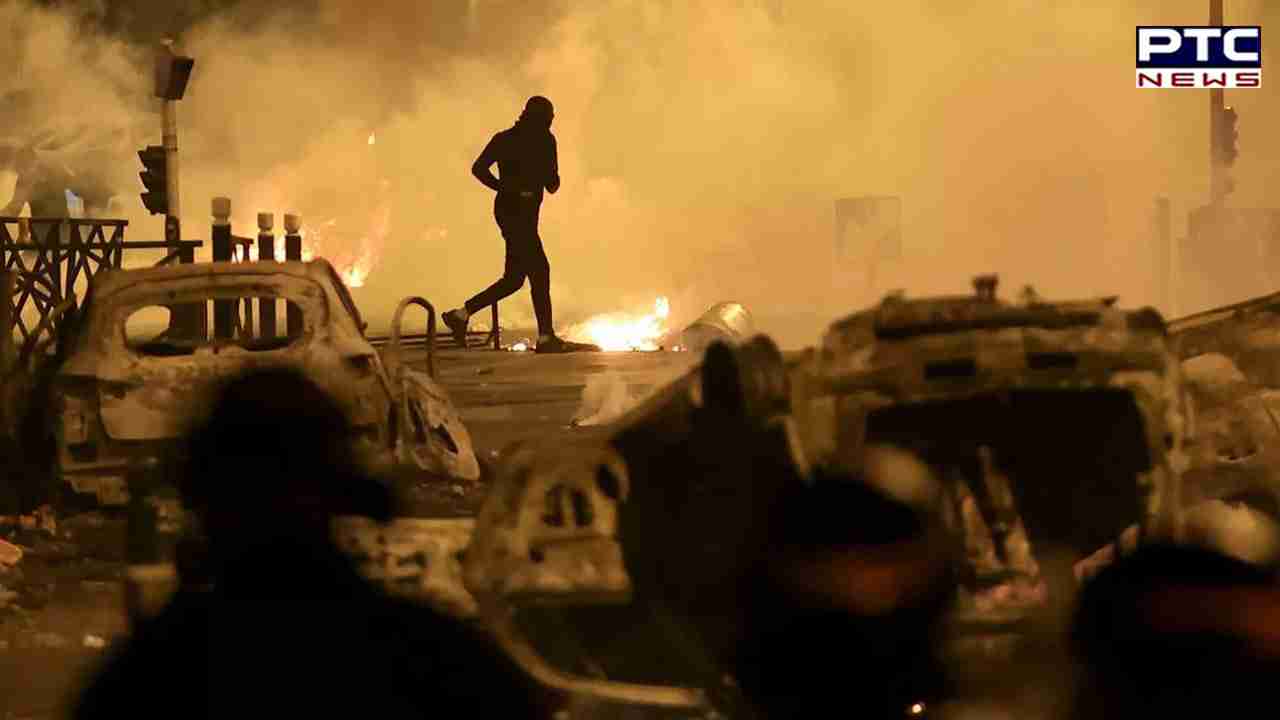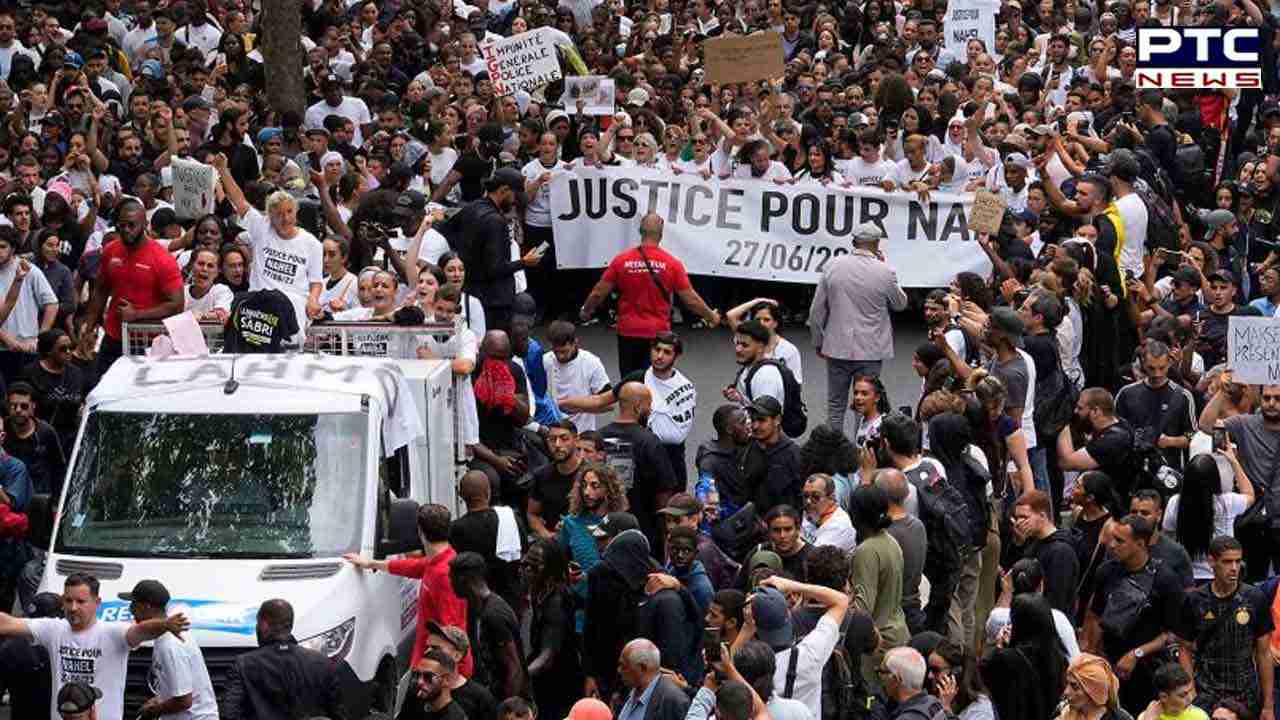French Police officer under investigation for teenager's fatal shooting sparks outrage and unrest
Curfew imposed in Paris suburb following unrest triggered by fatal police shooting of 17-year-old Nahel
Paris, June 30: A French police officer who shot and killed a 17-year-old teenager in a Paris suburb is now under formal investigation for "voluntary homicide." The deadly shooting has sparked widespread outrage and led to two nights of riots in the Calamart suburb of Paris.
The incident occurred during a traffic stop in Nanterre, and thousands of people participated in a memorial march demanding justice for the victim, named Nahel. The protest ended with clashes between police and demonstrators, resulting in tear gas being fired and cars being set on fire.
 French President Emmanuel Macron denounced the violent clashes and unrest and said that the acts of violence, which included attacks on and fires set to public buildings, were “unjustifiable.”
French President Emmanuel Macron denounced the violent clashes and unrest and said that the acts of violence, which included attacks on and fires set to public buildings, were “unjustifiable.”
The police officer has been placed in provisional detention as part of the investigation process. Being under formal investigation allows further time for examination before a decision is made on whether the case should proceed to trial.

The incident, captured on video, has reignited tensions between the police and young people in disadvantaged neighborhoods, where it is perceived as an example of police violence. The incident has highlighted concerns over police tactics, particularly when interacting with young men from non-white minorities. Protests have spread throughout France, resulting in approximately 150 arrests. In response to the unrest, the local authority of the Clamart suburb has announced a curfew from 9 pm to 6 am until Monday.
Violence Erupts: French government deploys thousands of police to restore order
Following a morning crisis meeting, Interior Minister Gerald Darmanin announced a significant increase in the deployment of police officers. The number of deployed officers would be more than quadrupled, from 9,000 to 40,000, with the Paris region alone seeing a more than doubling of officers to 5,000.
Darmanin emphasised that those inciting disorder should disperse, stating, "The professionals of disorder must go home." While a state of emergency has not been declared yet, similar to the one imposed during the 2005 riots, he affirmed that the government's response would be resolute.
 French President Emmanuel Macron convened an emergency security meeting to address the violence. At the meeting's outset, Macron condemned the acts as completely unjustifiable. The focus of the meeting was to secure areas experiencing unrest and devise strategies for the upcoming days to restore peace.
French President Emmanuel Macron convened an emergency security meeting to address the violence. At the meeting's outset, Macron condemned the acts as completely unjustifiable. The focus of the meeting was to secure areas experiencing unrest and devise strategies for the upcoming days to restore peace.
Despite an increased police presence on Wednesday night, violence persisted after dark. Protesters in Nanterre launched fireworks and threw stones at police, who responded with repeated rounds of tear gas. The demonstrations spread to other towns, posing challenges for police and firefighters as they struggled to contain the protesters and extinguish multiple fires.
_8f6584fa8ec13cf83be23c392cd4dd67_1280X720.webp) Damage was reported in schools, police stations, town halls, and other public buildings from Toulouse in the south to Lille in the north. The majority of the damage occurred in the Paris suburbs, according to a spokesperson for the national police.
Damage was reported in schools, police stations, town halls, and other public buildings from Toulouse in the south to Lille in the north. The majority of the damage occurred in the Paris suburbs, according to a spokesperson for the national police.
A "Shocking" Memorial March Ends with Tear Gas and Arson
A memorial march held for 17-year-old Nahel concluded in Nanterre on Thursday with riot police firing tear gas and several cars being set on fire, evoking shock among the participants. Families, young children, and peaceful protesters gathered to commemorate Nahel, but the situation turned violent with some individuals resorting to smashing buildings.
It has also come to our knowledge that the Sikh community are given especial care from the nearby Gurdwaras, looking at the current scenario.
_b7f7ddd0c56267b30ecbea58bedb4a8c_1280X720.webp)
Interior Minister Gerald Darmanin revealed that 170 officers have been injured in the unrest, though none of the injuries were life-threatening. Approximately 90 public buildings suffered vandalism during the demonstrations, and the number of civilians injured has not been released yet.
The recent unrest has brought back memories of the 2005 riots that engulfed France for three weeks and led to President Jacques Chirac declaring a state of emergency. The 2005 riots originated in the Paris suburb of Clichy-sous-Bois after the death of two young people who were electrocuted while hiding from the police in a power substation. The violence spread across the country, and a trial 10 years later resulted in two officers being acquitted.
Also Read: World Bank approves USD 1.5 billion loan to Ukraine